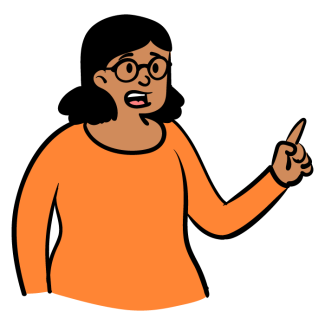Being able to effectively self-advocate requires the development of particular skills. In this section, we will teach you about various types of self-advocacy skills and how to use them.
Image

Decision-making
To develop your decision-making skills, you need to know what your strengths and weaknesses are, and what support you need to make decisions.
Image

Assertive
You can be assertive to help you to stand up for yourself and communicate your needs. Improving your self-confidence and communication skills can help you to be assertive.
Image

Negotiation
Negotiation skills are important because you can’t always get what you want, especially at work. But, you can usually find solutions that everyone agrees with.
Image

Conflict resolution
You can use communication, listening, understanding and problem-solving skills to resolve disputes in a healthy way.
Image

Keeping a record
Record keeping is an important tool in creating evidence to support your claim of something you have witnessed, received or experienced.